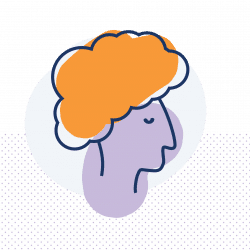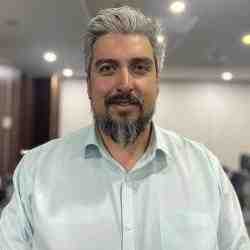Introduction
More and more aspects of our lives are impacted by technology. Jacek is establishing a self-sustaining ecosystem to ensure tech works for the common good and empowers everyone.
The New Idea
Jacek is creating a new self-sustaining ecosystem for social impact, where all actors involved understand and embrace the role of technology in creating new solutions for complex challenges that the world faces today.
To build an entire ecosystem, Jacek has two strategies that support each other. The first strategy embraces fostering a change in the IT industry by creating new standards (like pro-bono practices in the legal industry) to unlock existing resources and change the dynamics between tech companies and the citizen sector. This is possible because Jacek has built a coalition of 18 founding partners – tech companies, that give Tech To The Rescue (TTTR) credibility within the sector. Jacek works with a new generation of leaders to transform their approach from “I know how to do tech” to “the tech I know can do good.” The second strategy is Jacek's work with the citizen sector to bring the knowledge, tools, and support needed to leverage the use of technology for more significant social impact. Jacek supports civic organizations to really understand how technology can help them have a more significant impact. To bring the two worlds together, Jacek has created an online marketplace for the civic and tech sectors to find each other, collaborate, and pave a way for other players to participate.
More than 1100 companies and 560 social organizations cooperate with TTTR, which in a year and a half has collaboratively implemented projects that affect the lives of over three million people in twenty five countries. A website helping to attract volunteers to build wind farms for villages in Peru (Windaid Institute), an educational platform assisting women in preventing cervical cancer (Chava App), an application supporting people with autism (Signes de Sens), and an app for sharing experiences between patients with chronic diseases (Patients4Patients), are just some of the initiatives implemented in this new ecosystem thanks to TTTR.
Jacek's ultimate vision is that TTTR becomes redundant, when every changemaker has the knowledge and resources to pilot and implement impactful solutions leveraging technology to increase their impact and the tech industry is co-responsible and active in contributing to address those challenges.
The Problem
As Antonio Guterres said at the launch of United Nations Technology Innovation Labs, "The advances of the fourth Industrial Revolution, including those brought on by a combination of computing power, robotics, big data, and artificial intelligence, are generating revolutions in health care, transport, and manufacturing. I am convinced that these new capacities can help us to lift millions of people out of poverty, achieve the SDGs, and enable developing countries to leap-frog into a better future."
However, the civic sector does not currently benefit from technology in solving urgent social problems. According to the latest report by Klon-Jawor (an organization launched by Senior Ashoka Fellow Kuba Wygnański) about the citizen sector's condition from 2021, 97% of CSOs in Poland use email, and 68% electronic banking. But only 4% use CRM to manage their contacts, and only 5% use fundraising tools. There is no growth in CRM use compared to data from 2018, and minimal growth of using fundraising tools. The technology in the sector is still understood as websites and social media.
The Nonprofit Trends Report by Salesforce, conducted only in the most mature markets (US, UK, Scandinavia), indicates that while technology is instrumental in shifting to a work-from-anywhere culture, three in ten nonprofits struggle with data management across the business. 38% of nonprofits with revenue over $10M said it will be increasingly challenging over the next year to implement new technology solutions. Lack of resources and lack of technological know-how are named among the most common causes of such situations.
According to The Unlonely Planet 2022, 82% of Ashoka Fellows who answered an online survey said they use technology. Unfortunately, still, a relatively small number of tech solutions are genuinely designed to solve social problems or raise the quality of life of all people. Tech solutions with positive social impact are still very few and very new. Only 4% of the Ashoka Fellows, according to the same report, have technology at the core of their theory of change. Social entrepreneurs are not experimenting enough with new technologies and are not gaining the required experience and expertise to play their important safeguard role, to ensure the benefits and impact are for the good of all. We anticipate that like the business world, the citizen sector will also turn to technology as one of the strategies to create at-scale system change, quickly and efficiently. More investment, knowledge, support, and attention are required to grow the capacity of social entrepreneurs and their organizations to leverage the power of technology to address societal problems at-scale. This is an opportunity the sector cannot miss to effect exponential social impact and change.
At the same time, the tech revolution has built up new generations of the world's most powerful people. Eight out of ten of the United States’ richest billionaires in 2022 made fortunes with technology. Yet besides a handful of cases, a significant group of wealthy tech entrepreneurs have not yet found a way not only to accumulate wealth but to contribute to the common good.
The Strategy
Jacek works to create an ecosystem where everyone understands and embraces the role of technology in creating new solutions for complex challenges and plays a role in generating greater social impact by leveraging technology. He shows that collaboration is possible through an online marketplace, Tech To The Rescue (TTTR), where civic and tech sectors can collaborate. The curated platform enables increased social impact in CSOs by using dedicated IT solutions and creates a path for other players to participate in the ecosystem.
TTTR is focused on bringing knowledge, skills, and resources to the civic sector through the use of tech platforms and partnerships. Jacek’s organization has developed a process for CSOs, which allows them to embark on a learning journey to understand ways to best use technologies for social impact, while simultaneously bridging the existing knowledge gap. Jacek also provides the learning ladder for citizen sector organizations to understand technology and methods to use it to increase social impact. To amplify this work so it can get to many more organizations, Jacek plans to give access to free online and offline courses and trainings, to facilitate open-sourced templates for cooperation, and to work on creating and distributing ready to use no-code tools to contribute to the sustainability of the ecosystem. Jacek believes that every CSO should have a digital strategy and a Chief Technology Officer (CTO) in the team to be able to use technological solutions: test, adapt, and reinvent creatively. Jacek is piloting the idea of training CTOs from the civic sector; the first group has been trained and will be assessed to see if their newly acquired know-how enables them to bring new tech solutions to their organizations.
In the meantime, TTTR also connects IT companies with CSOs to address their current tech gaps. In less than two years, TTTR has already engaged over 1100 IT companies globally to join the movement Jacek is creating, and over three million lives have been positively impacted through 200+ collaborative tech projects sparked by TTTR, like UAsos.org – a match-making platform for refugees and accommodation providers that was put in place right after the start of the Russian invasion in Ukraine. A changemaker with a clear impact vision applied to TTTR who was able to activate the ecosystem so, in a few days, the tech solution was deployed with the support of many IT companies. From January to May 2022 alone, 100 social entrepreneurs and social activists initiated tech solutions to their mission through the ecosystem activated by Jacek.
The first weeks of the Russian invasion of Ukraine, and the urgency of the humanitarian crisis that it caused, was a key moment that demonstrated TTTR’s ecosystem readiness. The network enabled humanitarian players to individualize support through mapping needs and solutions on the ground. It also created a space for a movement of librarians, archivists, researchers, and developers from different countries, who came together with TTTR support to find and quickly archive content from Ukrainian cultural websites. These documents were all on local hard drives that could easily be destroyed. A group of more than 1,300 cultural heritage professionals, archived more than 25 terabytes of data from over 3,000 websites, with many of the original websites going offline shortly after being backed up.
Jacek, convinced that the current siloed structure needed to be broken so resources are unlocked and flow towards activating social change, is continuing to overcome identified barriers. The tech industry needed Jacek to find and explain in a relatively easy and safe way how to get engaged. But to ensure these efforts are sustained over time, Jacek is focusing on three systemic strategies to slowly transform the new tech industry: holding a mirror to the system, value changes through rankings, and creating standards. He’s started the publication of the first report about the social and environmental responsibility of IT companies in Poland. The diagnosis is the basis for corrective actions. And there is a lot to be fixed, from DEI and calculating carbon footprint to social responsibility. To build a value changes strategy, he works with major aggregators of Tech Companies to add indicators about genuine social engagement to the ranking of IT companies. In the following years, Jacek will focus on establishing a standard of pro bono and low bono collaboration between the tech industry and the civic sector. He also aims to bring a tax deduction for pro bono work in the IT industry to Poland, which currently does not have a system for this yet.
In the next five years, TTTR will still hold space for collaboration between tech companies and changemakers from countries across the globe. However, Jacek envisions a time when the citizen sector will have the knowledge, skills, and internal capacity to co-create solutions with tech aspects. A new generation of leaders from the tech industry will proudly claim that ‘the tech I know can do good.’ Moreover, they will be able to collaborate for social and environmental benefits and be fast to pilot solutions and adapt them to a quickly changing world. Jacek is convinced that 500,000,000 beneficiaries of TTTR’s direct impact will be a threshold for the self-sustaining ecosystem to take off fully.
The Person
Jacek grew up on a farm that continues to be his source of resilience. Education was important to him, so he decided to go to a good high school in Warsaw and committed to traveling three hours daily.
During his school years, at the age of 19, he participated in a new program created to foster changemaking in Polish youth. With a team of five friends from school, they decided to create a café for highschoolers to hang out after school and carry out some extra curricula activities – a place run by young people, for young people. They called it Tłocznia (Eng. Press Shop) and started it with €1K. The idea quickly took off and the team grew from 5 to 150 people. After three years, Jacek was studying energy technology at university, and Tłocznia required too much of his time, so he passed leadership to other peers.
It was then that Jacek joined his first hackathon. He had the idea to move Tłocznia to an online space. To pay for the registration fees of the foundation he wanted to launch to implement this concept, Jacek and his colleague took a job painting walls. Jacek approached the Orange Foundation and found that they had a very similar idea and were willing to partner. Jacek joined an organization that could provide the necessary infrastructure to create the online support platform, secured funding from the Orange Foundation and called it Pracownie Orange (Orange Workshops). There are now over one hundred of these places around Poland, through which Jacek successfully introduced the gamification strategy to encourage smart social activities in those spaces.
Through this experience, Jacek realized that technology was not the solution to all the problems, but with the use of social innovation, good tech could be implemented at scale, more effectively and efficiently. He also learned that citizen organizations have very little experience and knowledge about how to adopt technology in their work, so he founded a social enterprise called Gerere “helping changemakers to transform the world.” They created effective and impactful tools for social entrepreneurs to increase their impact with smart use of technology, , especially with the use of applied psychology and gamification.
With Gerere, Jacek realized that for many organizations, a long-term budget commitment for the constant development of IT solutions was a bottleneck. He was committed to finding new ways to lower this barrier, and to do it at scale. Obsessed with that quest, he designed the creation of a new ecosystem that could unlock resources for the citizen sector to increase their social impact, and TTTR was born.




